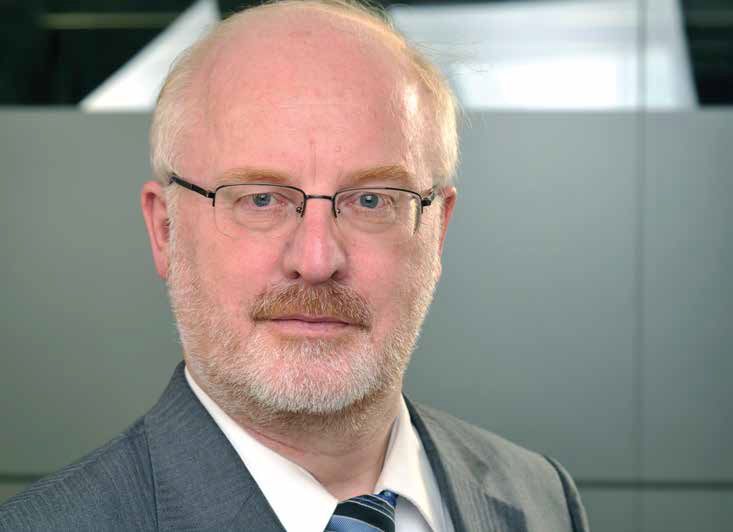Serbian government is oriented towards the economy like few other governments in Southeast Europe, both present and past says Mr Martin Knapp, Director of the German-Serbian Chamber of Commerce. The amounts of the foreign investments in Serbia, as well as the presence of German companies in Serbia are speaking for themselves about the attractiveness of the economy. However, in spite of these efforts, some administrative burdens are still proving to be resistant to changes. One of them is for sure the every company has to go for if they want to send and employee abroad. In times when more and more services in Serbia are becoming digitalised this one seems to be bullet proof, living up to standards of the former socialistic economy. It is one of these obstacles to which Mr Knapp is tirelessly pointing out: “Unfortunately, the dismantling of some old bureaucratic structures is something we are still waiting for”.

However, in this interview we spoke about some new issues which are coming into focus. Although, the Serbian government was quick to introduce dual education in the secondary education and is moving forward in tackling vocational education at the tertiary level, shortage of the qualified workforce is becoming an issue to which many foreign and domestic companies are pointing out.
It has been frequently mentioned that the lack of skilled labour is the key obstacle to Serbia’s economic growth. How often have German companies, operating in Serbia, encountered this problem?
– The subject is becoming more and more important. There are several reasons for this. Today, investors are coming to Serbia to produce products with a greater vertical range of manufacture or – with other words – more sophisticated production technologies than it was the case a few years ago. These companies, of course, need employees with higher qualifications. At the same time, employers in several European countries are recruiting Serbian specialists, so that the skilled work force in the country is further reduced.
You have recently indicated that you expect the Serbian government to undertake measures that could alleviate this problem. What are your expectations when it comes to retraining the workforce? Which job profiles could be the most in demand?
– Through a survey among Serbian industrial companies, we discovered that enterprises have very different ideas about continuing education. The willingness to invest in the further training of their employees is also varying. Therefore, we expect the same thing to happen as in Germany. The market for continuing training there is largely in the hands of private providers offering courses that meet the needs of companies. The first educational institutions with a German background have already established themselves in Serbia. If you ask which professional profiles our companies are particularly interested in, these are of course the profiles that the industry needs, such as CNC operators, industrial mechanics, electronics engineers, mechatronics engineers and many more. But there is also a demand for retail merchants or forwarding agents.
How much is this problem currently affecting German companies in terms of making the decision to invest here? What are the key reasons for them investing in Serbia, in addition to the workforce?
– The problem of the shortage of skilled labour in Germany is the most important reason why German companies are relocating their production abroad. It is well known that Serbia is slowly becoming tight, but the same applies to other European countries as well. Even in China, the labour force has become significantly more expensive.
On the other hand, what are your expectations regarding the forecasted slowdown of the German economy? Will this slowdown affect the pace of German investment activities in Serbia?
– I’m not a prophet. Who knows what dimensions the expected slowdown will take? However, we must add that part of the shortage of skilled workers does not depend on the good, for the time being, economic situation only, but on the demographic structure in Germany.
What are your expectations from the ongoing reform of the tax system and tax administration?
– The absolute level of taxation plays a role in deciding which country to invest in. Here Serbia, like any other country, must ensure that it remains competitive. Moreover, contrary to what many people believe, most companies have no problem with paying taxes. However, it is very important to be able to plan. What is not acceptable at all are short-term tax increases, which can overturn all calculations.
How would you rate the development of government services aimed at businesses so far?
– One thing must be conceded to the present government. It is oriented towards the economy like few other governments in Southeast Europe, both present and past. Unfortunately, the dismantling of some old bureaucratic structures is something we are still waiting for. We still have to get money from the bank for every employee who travels on a business trip and then return to the bank what he or she brings back from the trip, just like in good old socialist times…